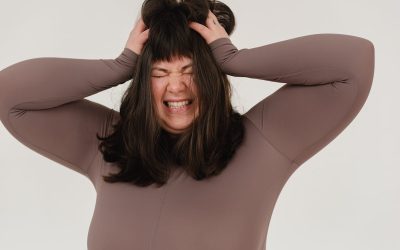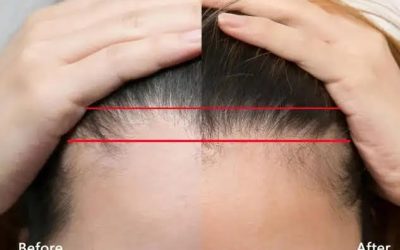Are you noticing a handful of hair on your brush or pillow? Before you sound the alarm, know that it is normal to lose some hair. In fact, women shed an average of 50 to 100 strands of hair per day.
However, there are times wherein the shedding becomes excessive and takes place for an extended period of time. If this is what’s happening to you, it’s best that you see a dermatologist or a trichologist as you may be suffering from hair loss.
Causes Of Female Hair Loss
Genetics: Androgenetic alopecia, also known as female pattern hair loss (FPHL) is the most common cause of hair loss in women. This condition is said to be hereditary. The hair loss may start at an early age but progresses in a gradual manner. It typically begins with hair thinning on the top frontal area of the head then slowly extends to the crown. Unlike in men, women do not lose their hairline. The condition also rarely results in balding.
In FPHL, follicles which are sensitive to male hormones undergo miniaturisation. This results in smaller, shorter and more brittle hairs. Eventually these hair follicles stop producing any new hair. It is still unknown though why this process occurs gradually and why hair in certain areas of scalp are more susceptible than others.
Medical Conditions: Hair loss may also be brought about by underlying illnesses like thyroid disease. Hyperthyroidism is a condition wherein too much thyroid hormone is secreted. This causes the metabolism to speed up which consequently triggers hair loss. Meanwhile, hypothyroidism is when there is too little thyroid hormone produced. Low levels of thyroid hormone may cause hair to become more brittle. With brittle hairs, you can become more susceptible to hair loss.
Alopecia areata, an autoimmune disorder, is a condition which results in hair loss in the scalp and other body parts like the eyebrows and limbs. In this condition, total hair loss on the head may occur (alopecia totalis) or in more severe cases, all over the body (alopecia universalis). The exact cause of alopecia areata is still not known. However, experts believe that it may be triggered by illnesses or extreme stress.
Certain scalp conditions like dandruff and ringworm may also lead to hair loss. These problems cause scalp inflammation which can hamper hair growth.
Other medical conditions which may lead to hair loss are diabetes, lupus, polycystic ovary syndrome (PCOS) and anaemia.
Excessive Styling And Use Of Hair Products: Too much chemicals as well as frequent exposure to heat (due to flat iron and hair blower usage) can damage hair and weaken it. Since the hair is brittle, it easily breaks or falls off. Additionally, frequently donning tight hairstyles like braids and buns may strain the hair and cause it to shed. This hair loss condition is called traction alopecia.
Ageing: For women, hair thinning is an inevitable part of growing old. In fact, reports indicate that around 50% of women experience hair thinning or hair loss by the time they reach 50. In these cases, hair loss is attributed to hormonal changes.
Treatments For Female Hair Loss
Since various factors may cause hair loss in women, an accurate diagnosis is necessary in successfully treating the problem. The diagnostic process typically includes examination of the hair and scalp as well as gathering pertinent information about you such as your medical history. In some cases, hair examination and other medical tests may be conducted.
If your hair loss is due to an underlying illness, treating the disease is the key to resolving the hair loss problem. Meanwhile, if your hair loss is due to tight hairstyles or excessive use of hair products, you’d need to avoid tight hairstyles and overusing products and equipment which can harm your tresses.
Hair loss due to ageing and conditions like alopecia areata and FPHL have no cure. However, your dermatologist can prescribe medications which can slow down the progression of the hair loss and promote hair regrowth. In these cases, early treatment is highly recommended to achieve favourable results.
Worried about hair loss? Schedule an appointment with our specialists to know what’s causing it and your treatment options. Call us at (0)1 6793618



